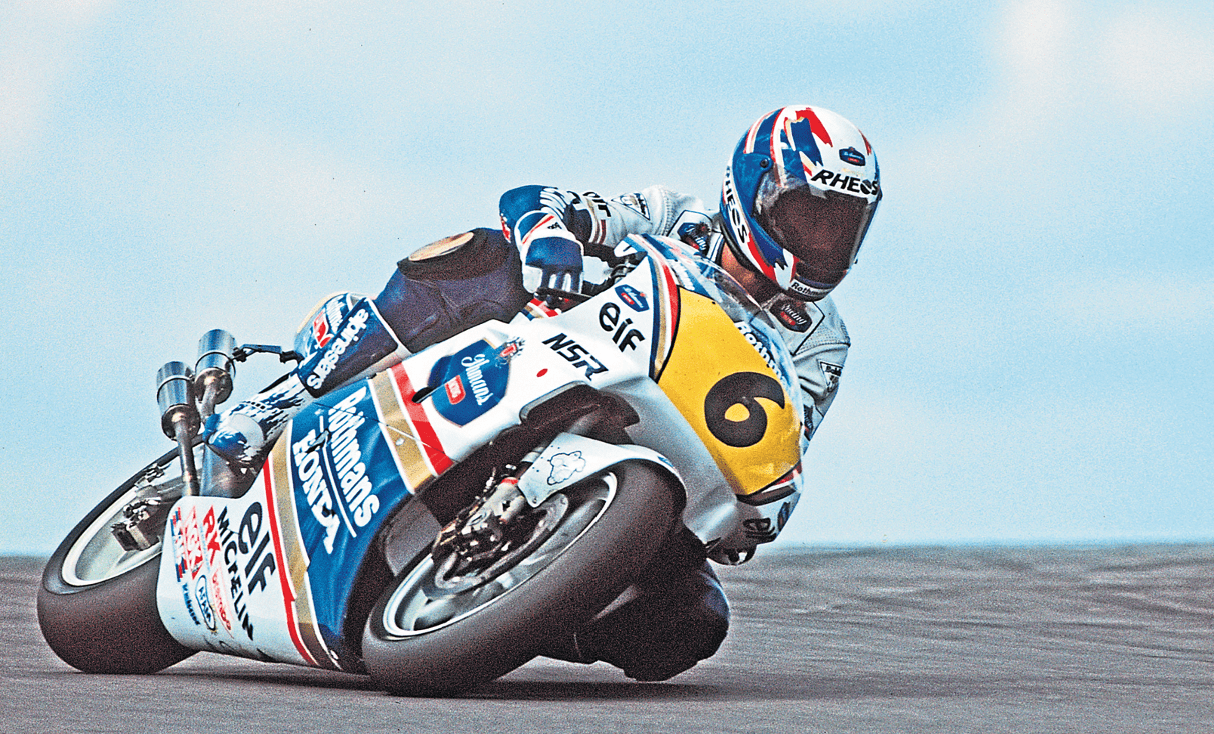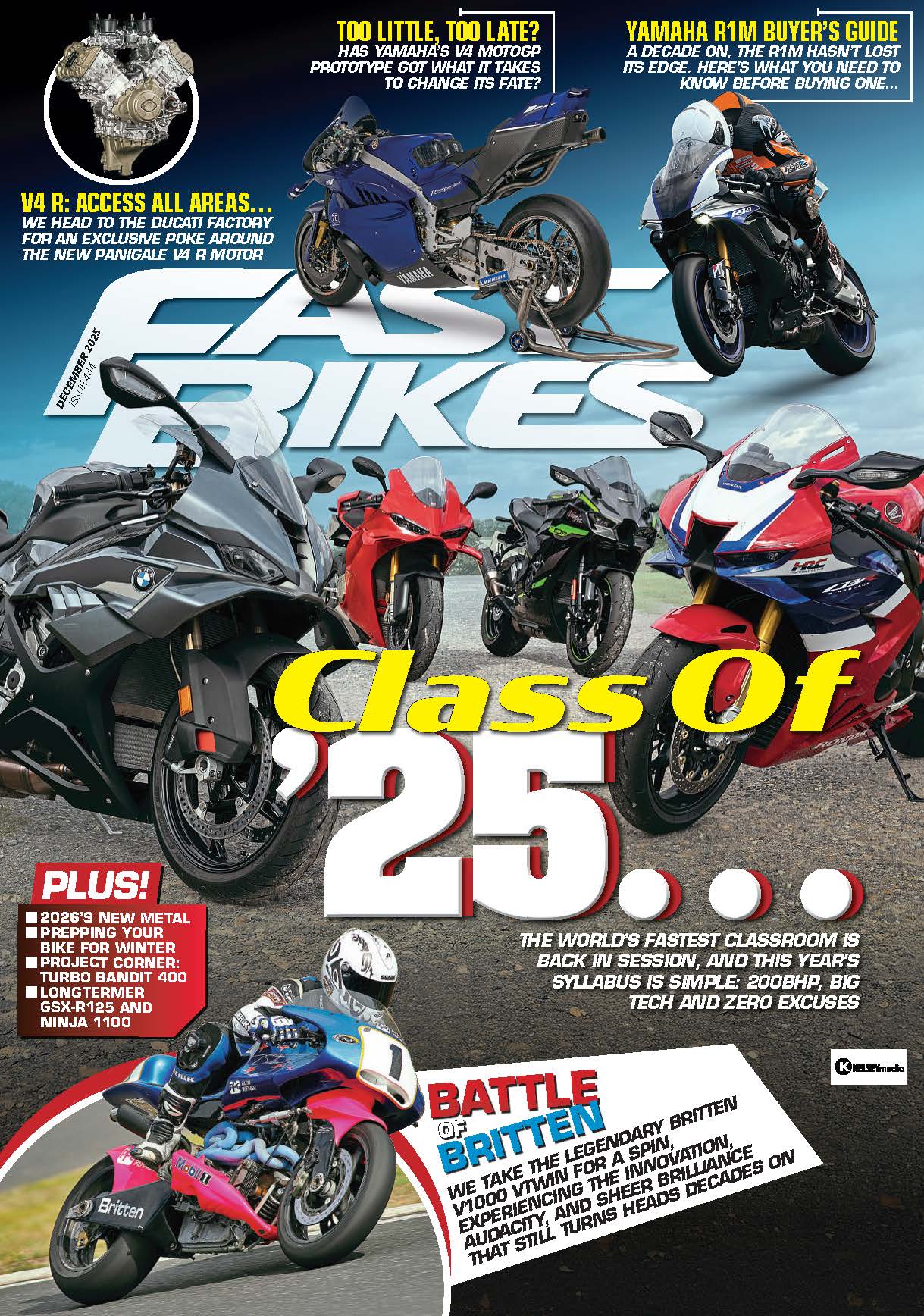Despite Honda’s move away from the famous Screamer motor to the more rider/tyre/frame friendly Big Bang engine, the 1993 500 MotoGP crown would elude The Big Aitch. Regardless of the investment, the R&D and much more besides, Honda spent most the season hanging on to the coattails of both Wayne Rainey on the polished Yamaha YZR500 and Kevin Schwantz aboard the Suzuki RG500. These two Americans would be going for the title and each other for most of the season until fate played a hand. Most pundits reckoned the 500 Yamaha was arguably the most rounded package and it suited Rainey’s style. The Suzuki square four had the power but it took the frankly lurid riding style of Schwantz with his ‘win it or bin it’ qualities to get the best out of the bike. Eight races into the season and it was anyone’s guess which of the pair would win the championship.

Up to that point it was as much about which bike/rider combination suited which track and until then German GP Honda hadn’t had a look in. Almost from the off Doohan took the lead but later dropped out with mechanical issues. After a rather mediocre start to the season, Honda finally had something to celebrate – Darryl Beattie on the Rothmans Honda came home first ahead of Schwantz, with Shinuichi Ito third on another Rothmans Honda and Alex Criville fourth riding a Marlboro Honda Pons machine. Perhaps the tide might just be turning for Honda? Sadly it wasn’t to be with Doohan taking just one win at the Italian GP, which was marred by Wayne Rainey’s career-ending crash.
Beattie would finish third in the championships with Doohan fourth. Despite not being present for the final races, Wayne Rainey’s stunning rides saw him taking second place in the standings, which underlined to everyone watching that the Yamaha was very much the best bike of the season – Honda was almost certainly taking notes! One small upgrade to Mick Doohan’s Honda would go on to be a crucial revision to the established status quo of the fearsome 500s. After the horrendous crash the previous season that saw him almost lose his right leg, it was apparent his ankle had lost substantial movement. Given that rear brakes were vital in positioning the fiery strokers for high-speed turns, Doohan’s team needed to come up with an alternative system if the Aussie was going to stand a chance of winning the following season.
The solution was a simple as it was inspired – the team fitted a thumb-operated rear brake lever to the left handlebar of the bike and Doohan very soon adapted to its use. Rather than be a passing fad, the thumb-operated rear brake would prove to be popular with numerous racers – even Valentino Rossi would use it after the accident that broke his tibia and fibula! The 1994’s NSR500 was essentially a subtle revision of the previous season’s big bang machines. Honda had experimented with fuel injection on Shinichi Ito bikes, but the gains made were considered to be too small for the additional hardware used. Although fuel injection was relatively common in the cars of the time, it simply wasn’t possible to control such systems on the highest-end race bikes with sufficient accuracy. Always in search of handling and performance improvements, Honda’s boffins found a clever and novel way of extracting more power from the engine.
The introduction of water injection into the exhausts ‘gifted’ the team an extra 10hp throughout the 6000 to 10,000 rev range – by cooling the exhaust gas its speed was reduced, resulting in better efficiency. However, in tests Doohan reckoned the extra power was more likely to help tie the chassis in even larger knots so opted not to use it and perhaps he was right. When Shinichi Itoh hit 201mph at Hockenheim a journalist asked him what it felt like breaking the 200mph barrier. The reply came back …”It felt very like 199mph.” Perhaps the NSR500 was fast enough after all!
By Steve Cooper, VJMC
#morebikes #morefeatures #motorcycles #schwantz




